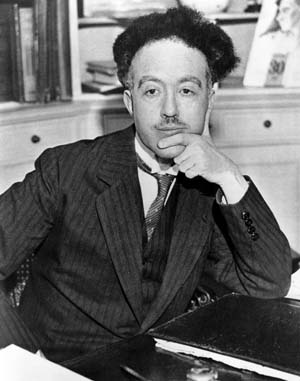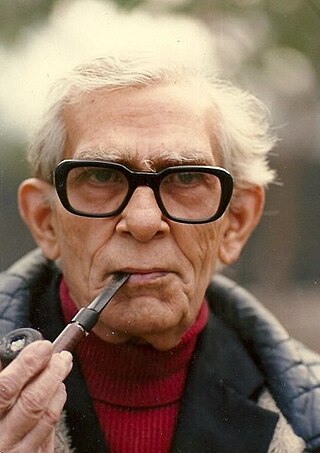Related Research Articles
Meshack Asare is a popular African children's author. He was born in Ghana and currently resides in Degenfeld, Germany. On 15 July 2014, he was announced as a finalist for the prestigious international award, the 2015 NSK Neustadt Prize for Children's Literature, which he won on 24 October 2014, becoming the first African to receive the award. The Brassman's Secret was his representative text read by the nominating jury, and the award honors his entire body of work.

Goutam Ghose is an Indian film director, Actor, music director and cinematographer, who works primarily in Bengali cinema. He is the only Indian to have received the "Vittorio Di Sica" Award, Italy, in 1997.
The Noma Award for Publishing in Africa, which ran from 1980 to 2009, was an annual $10,000 prize for outstanding African writers and scholars who published in Africa. Within four years of its establishment, the prize "had become the major book award in Africa". It was one of the series of Noma Prizes.

The Kalinga Prize for the Popularization of Science is an award given by UNESCO for exceptional skill in presenting scientific ideas to lay people. It was created in 1952, following a donation from Biju Patnaik, Founder President of the Kalinga Foundation Trust in India.
Kazushi Hosaka is a Japanese writer. He has won the Noma Literary New Face Prize, the Akutagawa Prize, and the Tanizaki Prize.

Literacy in India is a key for social-economic progress. The 2011 census, indicated a 2001–2011 literacy growth of 97.2%, which is slower than the growth seen during the previous decade. An old analytical 1990 study estimated that it would take until 2060 for India to achieve universal literacy at then-current rate of progress.
International Literacy Day is an international observance, celebrated each year on 8 September, that was declared by UNESCO on 26 October 1966 at the 14th session of UNESCO's General Conference. It was celebrated for the first time in 1967. Its aim is to highlight the importance of literacy to individuals, communities and societies. Celebrations take place in several countries.

Room to Read is a global non-profit organization headquartered in San Francisco, California. The organization focuses on working in collaboration with local communities, partner organizations and governments to improve literacy and gender equality in education.
The Noma Prizes were established by Shoichi Noma, or in his honor. More than one award is conventionally identified as the Noma Prize. Noma was the former head of Kodansha, the Japanese publishing and bookselling company. Kodansha is Japan's largest publisher of literature and manga.
Sister M. Cyril Mooney, IBVM was an India-based Irish nun, educationist, educational innovator and 2007 winner of the Padma Shri Award, the Government of India's fourth-highest civilian honour. She received awards including recognition by UNESCO (1994) and the International Christian Stewardship Award in 2002 given by the U.S. Conference of Catholic Bishops.
The UNESCO Confucius Prize for Literacy recognizes the activities of outstanding individuals, governments or governmental agencies and non-governmental organizations (NGOs) working in literacy serving rural adults and out-of-school youth, particularly women and girls. The Prize was established in 2005 through the support of the Government of the People's Republic of China in honour of the great Chinese scholar Confucius. It is part of the International Literacy Prizes, which UNESCO awards every year in recognition of excellence and inspiring experiences in the field of literacy throughout the world. The Confucius Prize offers two awards of US$20,000 each, a medal and a diploma, as well as a study visit to literacy project sites in China.
The Noma Literary Prize was established in 1941 by the Noma Service Association in accordance with the last wishes of Seiji Noma (1878–1938), founder and first president of the Kodansha publishing company. It is awarded by the Noma Cultural Foundation, the largest single shareholder in Kodansha. The Noma Literary Prize has been awarded annually to an outstanding new work published in Japan between October and the following September. The Noma Prize includes a commemorative plaque and a cash award of 3 million yen. It is one in a series of Noma Prizes.

Puthuvayil Narayana Panicker is known as the Father of the Library Movement in the Indian state of Kerala. The activities of the Kerala Grandhasala Sangham that he initiated triggered a popular cultural movement in Kerala which produced universal literacy in the state in the 1990s.

Malcolm Sathiyanathan Adiseshiah, was an Indian development economist and educator. In 1976 he was awarded the Padma Bhushan, India's third-highest civilian award. In 1998, UNESCO created the Malcolm Adiseshiah International Literacy Prize in recognition of his contribution to education and literacy. He was nominated to the Rajya Sabha, the upper house of the Parliament of India, in 1978.
Post-literacy or post-literacy education is a concept used in continuing education and adult education programs aimed at recently literate or "neo-literate" adults and communities, largely in the developing world. Unlike continuing education or further education, which covers secondary or vocational topics for adult learners, post-literacy programs provide skills which might otherwise be provided in primary education settings. Post-literacy education aims to solidify literacy education, provide resources and media aimed at the newly literate, and also may create systems of non-formal education to serve these communities. Projects include providing formal continuing education, providing written materials relevant to economic development to newly literate members of developing societies, and leveraging radio and other non-written media to increase access to educational material in informal settings.
The UNESCO King Sejong Literacy Prize is an annual prize awarded to three institutions, organizations or individuals "for their contribution to the fight against illiteracy."
UNESCO Nadezhda K. Krupskaya literacy prize' was named after Russian politician of the Soviet era Nadezhda K. Krupskaya. The prize was sponsored by the government of the Soviet Union in the period 1970-1992.
The IPDC-UNESCO Prize for Rural Communication is awarded by the UNESCO-sponsored International Programme for the Development of Communication. Its aim is to recognize initiatives for improving communication in rural communities, mainly in developing countries.

Mushtaq Ahmed Azmi, was a mass literacy expert. He was one of the first non-officials to be associated with the development of Adult Education program in India from the early 1950s, and was an early leader of the mass literacy movement. As an officer of UNESCO, he was posted in Africa and seconded to lead mass literacy programs in Nigeria and Zambia. He was offered a position in the UNESCO by the British diplomat and head of fundamental education at UNESCO John Bowers.
Chitra Jayant Naik (1918–2010) was an Indian educationist, writer, social worker, the chairperson of the Indian Institute of Education and the expert member of the Planning Commission of India. She was the chairperson of the Non-formal Education Committee set up by the Ministry of Human Resource Development and was a member of the National Literacy Mission. The Government of India awarded her the fourth highest Indian civilian honour of Padma Shri in 1986.
References
- ↑ UNESCO: Noma Prize winner, 1985
- ↑ India, Ministry of Human Resource Development: Noma Prize winner, 1993. Archived 2010-12-18 at the Wayback Machine
- ↑ Govt. of India, Press Information Bureau: Noma Prize winner, 1999